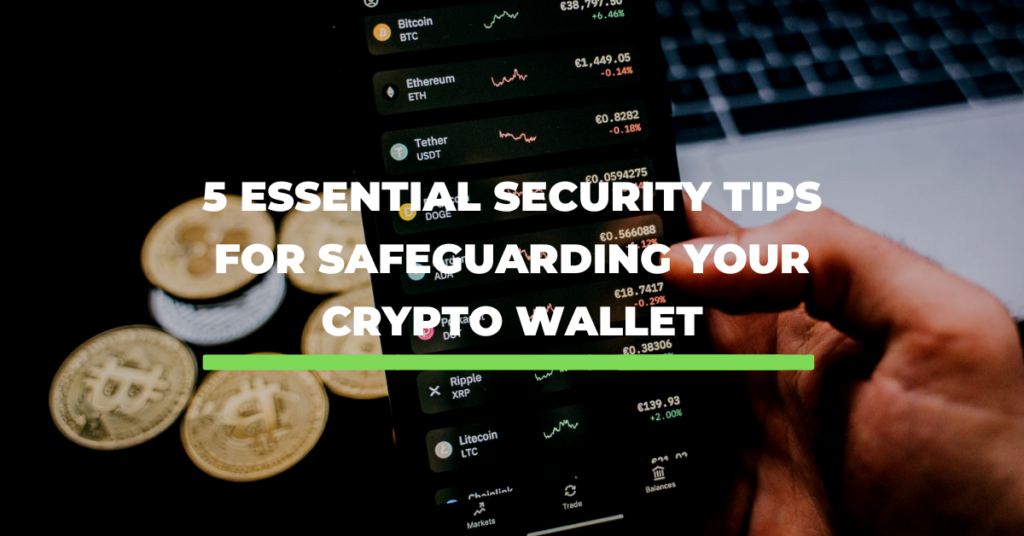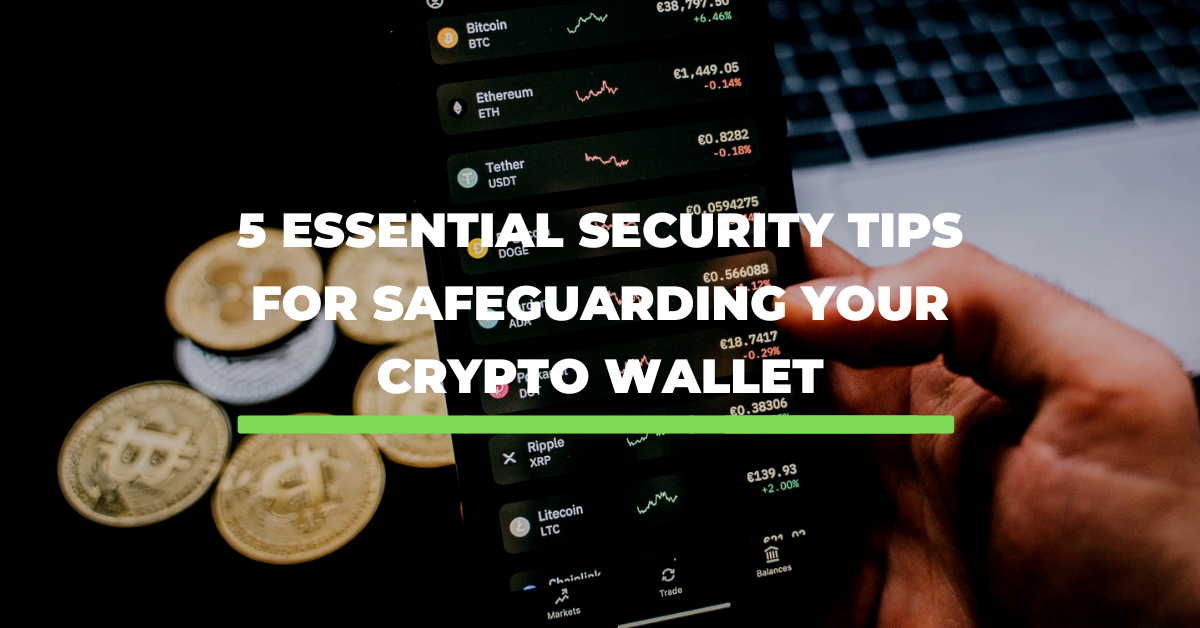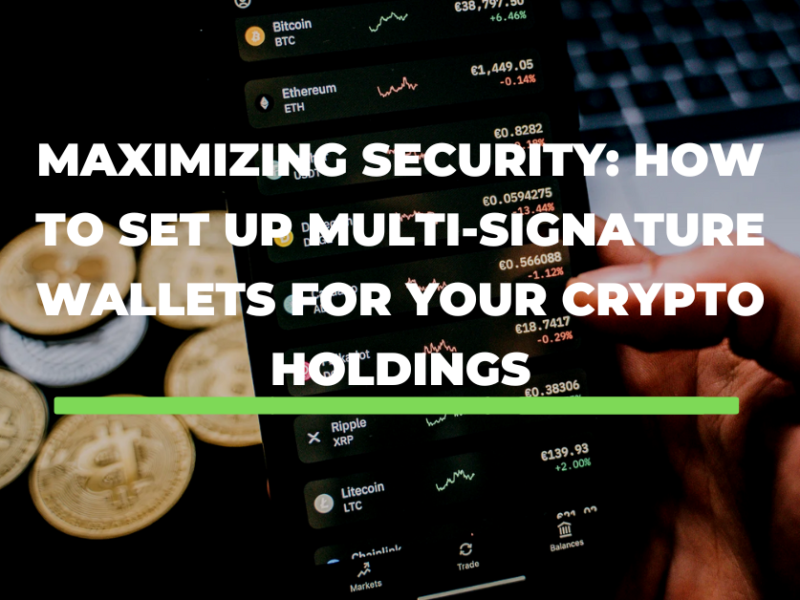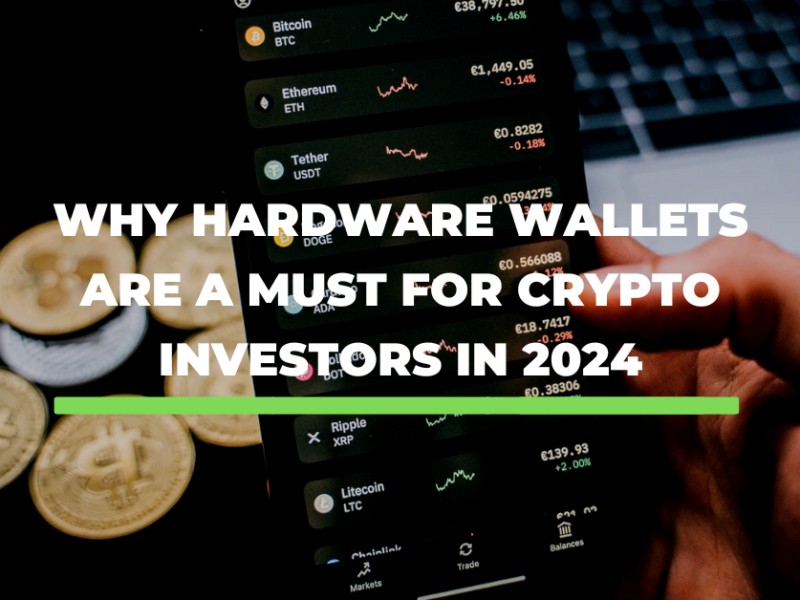As cryptocurrency investments become increasingly popular, securing your crypto wallet is crucial to protect your assets from theft, hacks, and other security threats. Whether you use a cold wallet for long-term storage or a hot wallet for frequent transactions, implementing robust security measures is essential. Here are five essential tips to help safeguard your crypto wallet:

1. Use Strong, Unique Passwords
Creating strong, unique passwords for your crypto wallet and associated accounts is one of the most fundamental steps in securing your assets. Follow these guidelines:
- Complexity: Use a combination of uppercase and lowercase letters, numbers, and special characters to create a password that is difficult to guess.
- Length: Aim for a password that is at least 12-16 characters long.
- Uniqueness: Avoid using the same password across multiple accounts to minimize the risk if one account is compromised.
Consider using a reputable password manager to generate and store complex passwords securely.
2. Enable Two-Factor Authentication (2FA)
Two-Factor Authentication (2FA) adds an extra layer of security to your crypto wallet by requiring a second form of verification in addition to your password. This could be:
- SMS Codes: A one-time code sent to your mobile phone.
- Authenticator Apps: Codes generated by apps like Google Authenticator or Authy.
- Hardware Tokens: Physical devices that generate or store 2FA codes.
2FA helps protect your wallet even if your password is compromised, making unauthorized access much more difficult.
3. Keep Your Private Keys Offline
Your private keys are the critical components that allow access to your cryptocurrency. Keeping them offline reduces the risk of exposure to online threats:
- Cold Storage: Store your private keys in a hardware wallet or other offline storage solutions.
- Paper Wallets: If using a paper wallet, ensure it is stored in a secure, physically safe location such as a safe deposit box.
Never share your private keys or store them in digital formats that can be accessed online.
4. Regularly Update Wallet Software
Whether you use a hardware wallet or a software wallet, keeping your wallet software up to date is crucial for security:
- Updates: Install updates and patches as soon as they are released. These updates often include security enhancements and bug fixes.
- Official Sources: Download wallet software and updates only from official sources or reputable providers to avoid malware or phishing attacks.
Regular updates help protect against known vulnerabilities and improve overall security.
5. Be Wary of Phishing Scams
Phishing attacks are a common method used by cybercriminals to steal your wallet credentials and private keys:
- Verify URLs: Always check the URL of the website you are visiting, especially when accessing your wallet or making transactions. Ensure it is the legitimate and secure site.
- Email Caution: Avoid clicking on links or downloading attachments from unsolicited emails or messages, even if they appear to be from trusted sources.
- Browser Extensions: Be cautious with browser extensions or plugins related to cryptocurrency. Ensure they come from reputable developers and verify their permissions.
Educate yourself about common phishing tactics and remain vigilant to protect your wallet from unauthorized access.
Conclusion
Securing your crypto wallet involves a combination of strong passwords, two-factor authentication, offline storage of private keys, regular software updates, and awareness of phishing scams. By following these essential security tips, you can significantly reduce the risk of losing your cryptocurrency assets and enjoy greater peace of mind. Remember, in the world of digital assets, proactive security measures are your best defense against potential threats.



Thanks
Thanks🌹
မင်္ဂလာပါ
မင်္ဂလာပါ
မင်္ဂလာပါ
Thanks 😍😘